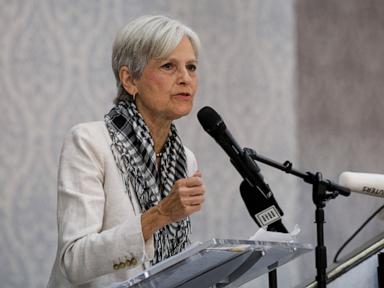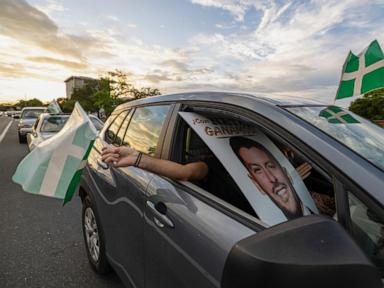Why a third-party presidential candidate can never win

In the lead-up to Election Day 2024, like every election before it, disaffection with the two major-party presidential candidates is bubbling. Many thoughtful and idealistic Americans are considering casting a protest vote for a third-party alternative, wishing that, if enough voters follow suit, they will smash the duopoly of Democrats and Republicans.
The problem is not that third-party candidates won’t win in November, but that they can’t win, and for reasons that have nothing to do with Trump or Harris. Given our existing institutions, there is no rational reason to vote for a third-party candidate.
This has nothing to do with the machinations of the Republican and Democratic parties, but the fundamental political science concept known as Duverger’s Law.
In the 1950s, French political sociologist Maurice Duverger articulated what is now about as close to a law-like regularity as exists in politics. Duverger demonstrated that election outcomes and party systems are determined by electoral institutions and how the votes are tallied.
First-past-the-post electoral systems, like in the U.S., produce two-party systems. Proportional-representation systems, like in Europe and Latin America, produce multi-party systems.
This makes sense. In proportional representation, you vote for the party that reflects your ideology. If you’re a Green or Libertarian and your party gets 15 percent of the vote, they get a respectable 15 percent of the seats in the legislature. Since there’s no reason not vote your conscience, a wide range of parties up and down the ideological spectrum can exist.
But in America, our first-past-the-post electoral system trades ideological representation for geographic representation. We divvied up the entire country into states and congressional districts, and whoever gets the most votes wins. It is a winner-take-all system. The winner gets 100 percent of the representation and the runner-up gets nothing. All of the also-rans — those Greens, Libertarians and other third-partiers — get nothing, too. The inevitable result is a system with two deeply entrenched political parties.
Thanks to the Electoral College, Duverger’s Law applies to American presidential elections as well. With the exception of Nebraska and Maine, statewide presidential elections follow the same winner-take-all logic.
To break the two-party duopoly, a successful third-party candidate faces the insurmountable task of somehow psychologically removing voters’ core partisan identities as “Republicans” or “Democrats,” which provide meaning and direction to peoples’ political decisions.
A successful third party would have to wage a campaign that is somehow liberal enough to defeat Democrats in blue states like New Jersey while at the same time being conservative enough to defeat Republicans in red strongholds like Kansas.
This is a political unicorn, a thing that cannot exist. It’s also why every attempt to forge a moderate, centrist or coalition alternative — from the Reform Party and the Unity Party to “No Labels” and Andrew Yang’s Forward Party — have struggled or collapsed or are destined to collapse.
Disgruntled voters have long been lectured by politicians, pundits and even aliens on “The Simpsons” that to vote for a third-party candidate is to throw your vote away — or, even worse, to spoil the election.
But it is not simply that a third-party vote won’t matter. It can’t matter.
This makes “voting one’s conscience” for a third-party candidate as a protest against Democrats or Republicans simply a spectacle of personal affirmation and self-congratulation. Real change in America comes from the hard, grinding work of fighting for meaningful institutional reform.
Voters may not be familiar with Duverger, but politicians have long understood these dynamics.
Even before Donald Trump’s MAGA makeover, the GOP was an unwieldy monster of two heads in one body: establishment Republicans versus “Tea Partiers.” The two heads seldom got along, as repeated government shutdowns attest. So why didn’t the Tea Party simply break away from the GOP?
With its 24 percent support in the 2010s, the Tea Party could have made a very influential third party in a proportional-representation system. But with winner-take-all elections, it would be political suicide. If Tea Party spoilers took 24 percentage points away from Republicans up and down the ballot, every competitive election nationwide would have swung to the Democrats. The resulting blue wave would have washed away both the Tea Party and the GOP itself.
Or consider Bernie Sanders. Why would a self-professed independent socialist run for president in 2016 and 2020 as a Democrat? Ultimately — as Duverger suggests — because it is easier to work within the two-party institutions than against them. Mirroring his “Bernie two-step” approach in Vermont, Sanders would run in the Democratic primary to eliminate his Democratic challengers, and then switch to “independent” to confront his Republican rival in the general election. If he were to run as an independent, he’d be a traditional third-party spoiler, splitting the Democratic vote and allowing an easy Republican victory.
Finally, consider the most successful recent independent presidential campaign. In 1992, H. Ross Perot won 19.7 million votes, or 19 percent nationwide, placing second in Maine and Utah. But again, second place gets you nothing. For all the millions of votes, and $64 million of his own money spent, the populist Texan won zero electoral votes, and may have handed the victory to Bill Clinton. After waging the most “successful” third-party bid in living memory, Perot was no closer to winning the Oval Office than you or I.
In every single case, the third-party challenger loses, and Maurice Duverger wins. No amount of wishful thinking can break his ironclad law.
Meaningful electoral reform — including abolishing the Electoral College — is the only way to foster viable third-party alternatives, not the delusional self-affirmation of a throw-away protest vote.
Mark Lawrence Schrad, Ph.D. is professor of Political Science and director of Russian Area Studies at Villanova University, and author of “Smashing the Liquor Machine: A Global History of Prohibition” and “Vodka Politics: Alcohol, Autocracy, and the Secret History of the Russian State.”
-

How both presidential candidates could secure a North Carolina win
Politics - NBC News - October 24 -

‘We have to blow it up’: can never-Trumpers retake the Republican party?
World - The Guardian - October 27 -
Why the stock market failed to see that Trump would win the presidential election
Business - MarketWatch - November 8 -

Mozambique's ruling party candidate declared winner of presidential election as rigging claims swirl
World - ABC News - October 24 -
Ruling party candidate Daniel Chapo declared as winner of Mozambique presidential election as claims of rigging swirl
World - ABC News - October 24 -

How third-party candidates could make a difference in swing states
Politics - The Hill - October 22 -

Third-party candidates could be swing-state spoilers despite strong Democrat efforts
Top stories - ABC News - November 1 -

Puerto Rico prepares for Election Day as a third-party candidate makes history
World - ABC News - November 3
More from The Hill
-

Bill O'Reilly: Donald Trump Cabinet will have zero policy input
Politics - The Hill - 10 minutes ago -

Will DOGE put spending on the chopping block?
Politics - The Hill - 16 minutes ago -

Stephen A. Smith: Trump may have ulterior motive for Gaetz pick
Politics - The Hill - 21 minutes ago -

What RFK Jr. could — and couldn't — do with vaccines as HHS chief
Politics - The Hill - 31 minutes ago -

World War III is now Trump's to lose
Politics - The Hill - 46 minutes ago